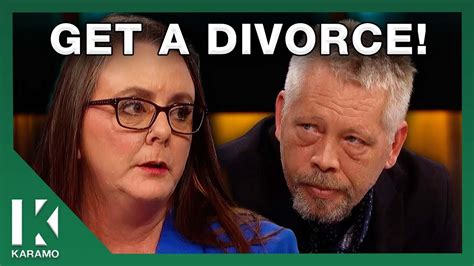
A woman known only as “Abby” is grappling with the frustrating reality that her boyfriend, despite assurances, has not finalized his divorce from his wife, leaving her in a state of emotional limbo and questioning the future of their relationship.
A reader, identified as Abby, wrote to the “Dear Abby” advice column seeking guidance on a troubling situation: her boyfriend remains legally married despite promising to divorce his wife. According to Abby, her boyfriend has repeatedly stated his intention to end his marriage but has yet to take concrete action, causing her significant distress and uncertainty about the future of their relationship. This situation highlights the complexities and emotional toll of relationships where one partner is still legally tied to someone else.
In her letter, Abby reveals a pattern of unfulfilled promises from her boyfriend regarding his divorce. “He’s still married!” she exclaims, encapsulating her frustration. She indicates that the protracted divorce process, or rather, the lack thereof, has created a significant rift in their relationship, leading her to question his sincerity and commitment.
Abby’s predicament is not uncommon, as many individuals find themselves in relationships with partners who are separated but not yet divorced. These situations are often fraught with legal, financial, and emotional complexities that can significantly impact all parties involved. The absence of a legal dissolution of marriage can create ambiguity and instability, making it difficult to move forward with a new relationship.
The advice columnist, Dear Abby, responded with directness and empathy, acknowledging the reader’s difficult situation. Abby’s response emphasized the importance of setting boundaries and making informed decisions about one’s own well-being.
Dear Abby’s advice centered on the idea that Abby should not put her life on hold indefinitely waiting for her boyfriend to take action. “You are living in limbo, and you shouldn’t be,” Dear Abby wrote. The columnist suggested that Abby needs to have a serious conversation with her boyfriend, setting a firm deadline for him to finalize his divorce. If he fails to meet that deadline, Dear Abby advised Abby to seriously consider ending the relationship.
Dear Abby’s advice also underscored the importance of self-respect and not allowing oneself to be strung along. The columnist pointed out that the boyfriend’s inaction speaks volumes about his priorities and his respect for Abby’s feelings. The advice implied that Abby deserves a partner who is fully available and committed, both emotionally and legally.
The situation presented by Abby raises several important questions about relationships, commitment, and the legal aspects of marriage and divorce. It also highlights the emotional challenges individuals face when navigating relationships with partners who are still legally married to someone else. The complexities of these situations often require careful consideration, open communication, and a clear understanding of one’s own needs and boundaries.
The broader implications of this scenario extend to the legal and social frameworks surrounding marriage and divorce. The legal process of divorce can be lengthy and complicated, involving issues such as property division, child custody, and spousal support. These factors can contribute to delays and complications in finalizing a divorce, even when both parties are in agreement.
Moreover, the social stigma associated with divorce can also play a role in delaying the process. Some individuals may be hesitant to initiate divorce proceedings due to personal beliefs, family pressures, or concerns about the impact on their social standing. These factors can further complicate the situation and create additional stress for all parties involved.
In conclusion, Abby’s situation highlights the challenges and complexities of relationships where one partner is still legally married to someone else. It underscores the importance of open communication, clear boundaries, and a willingness to prioritize one’s own well-being. Dear Abby’s advice offers practical guidance for navigating this difficult situation and emphasizes the need for self-respect and a commitment to personal happiness. The broader implications of this scenario extend to the legal and social frameworks surrounding marriage and divorce, highlighting the need for a clear and compassionate approach to these complex issues.
Expanded Details and Context
The issue raised in Abby’s letter touches on a common but often unspoken reality in modern relationships: the extended period of separation and uncertainty that can precede a formal divorce. In many cases, couples may separate emotionally and even physically long before initiating legal proceedings to dissolve their marriage. This period of limbo can create significant challenges for individuals seeking to move on and form new relationships.
One of the key challenges is the emotional baggage that often accompanies a separation. Even when both parties agree that the marriage is over, there may still be unresolved issues, hurt feelings, and lingering resentments. These emotions can make it difficult to navigate the divorce process in a timely and amicable manner.
Furthermore, the legal aspects of divorce can be complex and time-consuming. Depending on the jurisdiction and the specific circumstances of the case, the divorce process may involve lengthy negotiations, court hearings, and legal fees. Issues such as property division, child custody, and spousal support can further complicate the process and lead to delays.
In Abby’s case, the boyfriend’s failure to finalize his divorce suggests that he may be facing some of these challenges. It is possible that he is struggling with the emotional or legal aspects of ending his marriage, or that he is simply procrastinating due to fear or uncertainty. Whatever the reason, his inaction is clearly having a negative impact on his relationship with Abby.
Dear Abby’s advice to Abby is based on the principle that she deserves to be in a relationship with someone who is fully available and committed. By setting a firm deadline for her boyfriend to finalize his divorce, Abby is asserting her own needs and boundaries. If he is unable to meet that deadline, she may need to consider ending the relationship in order to protect her own emotional well-being.
The situation also raises questions about the boyfriend’s motivations and intentions. Is he truly committed to Abby, or is he simply using her as a placeholder while he sorts out his feelings about his marriage? Is he being honest with Abby about the reasons for the delay in his divorce, or is he withholding information? These are important questions that Abby needs to consider as she evaluates the future of their relationship.
The broader implications of this scenario extend to the legal and social frameworks surrounding marriage and divorce. The legal system plays a crucial role in providing a fair and efficient process for dissolving marriages. However, the system can be slow and cumbersome, and it may not always be responsive to the needs of individuals who are seeking to move on with their lives.
In addition, social attitudes toward divorce can also play a role in shaping individual experiences. While divorce is becoming increasingly common, it is still often viewed as a personal failure or a source of shame. This stigma can make it difficult for individuals to talk openly about their experiences and to seek support from friends, family, or mental health professionals.
Impact on Mental Health
The emotional toll of being in a relationship with someone who is not legally divorced can be significant. Abby’s situation underscores the anxiety and uncertainty that arise from the lack of closure. This can manifest as:
- Increased Stress: The constant worry about the boyfriend’s marital status can lead to chronic stress.
- Anxiety and Depression: The emotional limbo can trigger feelings of anxiety, sadness, and hopelessness.
- Low Self-Esteem: Questioning one’s worth and attractiveness can erode self-esteem.
- Relationship Strain: The unresolved issue can create tension and conflict within the relationship.
- Trust Issues: Doubts about the boyfriend’s honesty and commitment can damage trust.
Dear Abby’s advice recognizes these potential impacts and emphasizes the importance of prioritizing one’s mental health. Setting boundaries and being prepared to end the relationship are ways to protect oneself from further emotional harm.
Legal Perspectives
From a legal standpoint, Abby’s situation is precarious. She has no legal rights or protections in relation to her boyfriend’s marital assets or decisions. Should he become incapacitated or pass away before the divorce is finalized, Abby could find herself with no recourse.
Furthermore, depending on the jurisdiction, her relationship with a married man could have legal ramifications. While adultery is not a criminal offense in many places, it can be a factor in divorce proceedings, potentially affecting spousal support or property division.
The lack of legal clarity and protection adds to the emotional burden and underscores the importance of the boyfriend finalizing his divorce.
Ethical Considerations
The situation also raises ethical questions about the boyfriend’s behavior. Is he being fair to his wife, to Abby, or to himself? Is he avoiding the divorce process because he is unwilling to confront the emotional or financial consequences?
While it is ultimately his responsibility to resolve his marital situation, his inaction is causing harm to others. Ethical behavior would involve being honest and transparent with both his wife and Abby, and taking concrete steps to finalize the divorce in a timely manner.
Alternatives and Solutions
Beyond Dear Abby’s advice, there are other potential avenues for Abby to explore:
- Couples Counseling: If both Abby and her boyfriend are willing, couples counseling could help them address the underlying issues and communicate more effectively.
- Individual Therapy: Abby could benefit from individual therapy to process her emotions and develop coping strategies.
- Legal Consultation: Abby could consult with an attorney to understand her rights and options, even though she is not directly involved in the divorce proceedings.
- Mediation: If the boyfriend is willing, mediation with his wife could help them reach a mutually agreeable divorce settlement.
These alternatives may not all be feasible or desirable, but they represent potential pathways toward resolution.
Societal Trends and Divorce Rates
To understand the context of Abby’s situation, it’s helpful to consider broader societal trends related to marriage and divorce. Divorce rates have fluctuated over the past several decades, with peaks in the 1970s and 1980s, followed by a gradual decline. However, divorce remains a common experience, affecting a significant portion of the population.
Several factors contribute to divorce rates, including:
- Changing Social Norms: Divorce is more socially acceptable than it once was.
- Increased Economic Independence of Women: Women are less reliant on marriage for financial security.
- Increased Expectations for Marital Happiness: People expect more from their marriages than previous generations did.
- Longer Life Expectancy: Couples are married for longer periods of time, increasing the likelihood of relationship breakdown.
These trends highlight the challenges of maintaining long-term relationships in modern society and underscore the importance of communication, commitment, and personal growth.
The Role of Communication
Effective communication is essential for navigating the complexities of relationships, especially when one partner is still legally married. Open and honest conversations can help to clarify expectations, address concerns, and build trust.
In Abby’s case, it is crucial for her to communicate her needs and boundaries clearly to her boyfriend. She needs to express how his inaction is affecting her and what she needs from him in order to continue the relationship.
Similarly, the boyfriend needs to be transparent about the reasons for the delay in his divorce and his intentions for the future. He needs to be willing to listen to Abby’s concerns and to take steps to address them.
Without effective communication, the relationship is likely to continue to deteriorate, leading to further emotional distress for both parties.
The Importance of Self-Respect
Dear Abby’s advice emphasizes the importance of self-respect. This means recognizing one’s own worth and not allowing oneself to be treated poorly.
In Abby’s case, self-respect means not accepting the status quo indefinitely. It means setting boundaries and being prepared to walk away if her needs are not being met.
Self-respect is not selfish or demanding. It is a fundamental aspect of mental health and well-being. It allows individuals to make choices that are in their own best interests and to protect themselves from emotional harm.
Conclusion: A Call for Action and Self-Care
Abby’s situation is a complex one, fraught with emotional, legal, and ethical considerations. It highlights the challenges of navigating relationships when one partner is still legally married and underscores the importance of communication, boundaries, and self-respect.
Dear Abby’s advice provides a practical framework for Abby to take action and protect her own well-being. By setting a deadline for her boyfriend to finalize his divorce, Abby is asserting her needs and forcing him to make a decision.
Whether the boyfriend ultimately chooses to finalize his divorce or not, Abby needs to be prepared to prioritize her own happiness and to make choices that are in her own best interests. This may mean ending the relationship and moving on to find a partner who is fully available and committed.
Ultimately, Abby’s situation is a reminder that everyone deserves to be in a relationship that is based on honesty, respect, and mutual commitment. It is a call for action and self-care.
FAQ: Frequently Asked Questions
-
What should I do if my partner is separated but not divorced?
- The first step is open and honest communication. Discuss the reasons for the delay in the divorce, establish a timeline for finalization, and clearly communicate your needs and expectations. If the situation remains unresolved, consider seeking couples counseling or individual therapy.
-
Is it wrong to date someone who is still married?
- Ethically, it is a complex situation. While not illegal in most jurisdictions, it can create emotional and legal complications. It’s essential to be aware of the potential impact on all parties involved, including the spouse and any children. Many people would advise against it until the divorce is finalized, to avoid unnecessary heartache and complications.
-
How can I protect myself emotionally in a relationship with someone who is still married?
- Set clear boundaries, prioritize self-care, and maintain realistic expectations. Acknowledge the inherent instability of the situation and be prepared to end the relationship if your needs are not being met. Seeking support from friends, family, or a therapist can also be beneficial.
-
What legal implications might arise from dating someone who is still married?
- While adultery is not typically a criminal offense, it can be a factor in divorce proceedings, potentially affecting spousal support or property division. Additionally, you may not have any legal rights or protections in relation to your partner’s marital assets or decisions.
-
How long is too long to wait for someone to get divorced?
- There is no definitive answer, as it depends on individual circumstances and expectations. However, if a reasonable timeline has passed and there is no progress, it may be time to re-evaluate the relationship and consider whether it is worth continuing. Dear Abby suggests setting a firm deadline and sticking to it.
-
What are some common reasons why people delay getting a divorce even after separating?
- Common reasons include financial concerns (cost of legal fees, property division), emotional challenges (grief, guilt, fear of being alone), concerns about children, religious or cultural beliefs against divorce, and ongoing conflict with the spouse.
-
If my partner says the divorce is “in progress,” how can I verify that?
- Ask for specifics, such as the name of the attorney and the court where the divorce is filed. You could also subtly suggest accompanying them to a meeting with their lawyer or ask to see relevant documentation (redacted as necessary to protect privacy). However, proceed with caution to avoid creating mistrust.
-
How can couples counseling help in a situation where one partner is still married?
- Couples counseling can provide a safe space to address underlying issues, improve communication, and develop coping strategies. It can also help both partners clarify their needs and expectations and make informed decisions about the future of the relationship.
-
What are the potential consequences of staying in a relationship with someone who never gets divorced?
- You may experience chronic emotional distress, anxiety, and uncertainty. You may also miss out on opportunities to form healthy, committed relationships with available partners. Additionally, you will lack legal rights and protections in relation to your partner’s assets and decisions.
-
Should I give an ultimatum to my partner to finalize the divorce?
- Giving an ultimatum is a personal decision, but it can be a way to assert your needs and boundaries. Before doing so, carefully consider the potential consequences and be prepared to follow through if your partner does not meet your expectations. Ensure you communicate your reasons clearly and calmly.
-
How can I rebuild my self-esteem if I’ve been in a relationship with someone who won’t get divorced?
- Focus on self-care activities, such as exercise, healthy eating, and spending time with loved ones. Seek therapy or counseling to process your emotions and develop coping strategies. Set realistic goals and celebrate your accomplishments. Remember that you deserve to be in a relationship with someone who is fully available and committed.
-
What resources are available for someone in my situation (dating someone still married)?
- Therapists and counselors specializing in relationship issues, support groups for people in unconventional relationships, and online forums where you can connect with others who have similar experiences. Legal professionals can also provide guidance on your rights and options.
-
How does the lack of a legal marriage affect my ability to make decisions for my partner in case of an emergency?
- Without a legal marriage, you typically have no legal right to make medical or financial decisions for your partner. To address this, your partner can create advance directives, such as a durable power of attorney for healthcare and a durable power of attorney for finances, designating you as their agent.
-
Can I be held liable for my partner’s debts or obligations if they are still legally married to someone else?
- Generally, you are not liable for your partner’s debts or obligations unless you have co-signed a loan or agreement. However, it’s wise to consult with an attorney to understand your specific rights and liabilities in your jurisdiction.
-
What steps can my partner take to expedite the divorce process if their spouse is being uncooperative?
- Consult with a divorce attorney to explore options such as filing a motion for default judgment (if the spouse fails to respond to the divorce petition), seeking court orders for discovery (to compel the spouse to provide information), and requesting a hearing to resolve disputed issues. Mediation can also be a helpful tool to reach a settlement.









